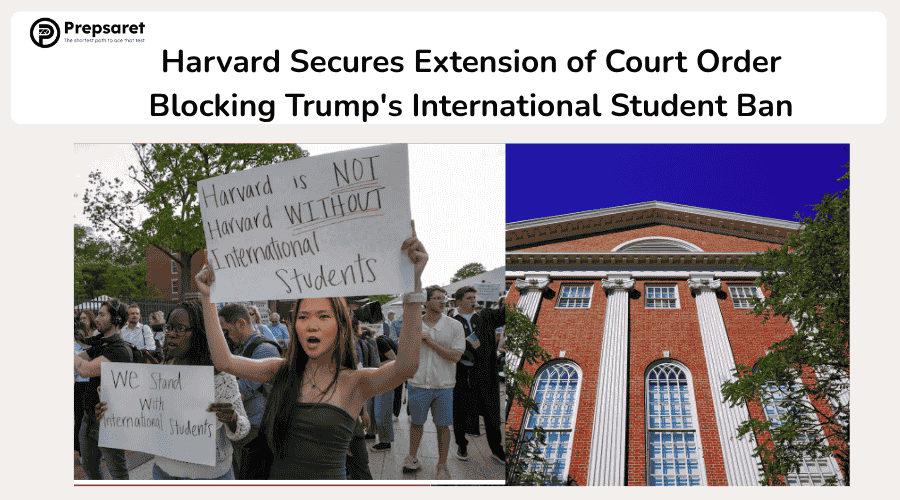Summary:
- A U.S. District Court judge has extended a temporary restraining order, blocking President Trump’s ban on foreign nationals entering the U.S. to study at Harvard University.
- Harvard argues that the ban infringes on its First Amendment rights and constitutes retaliation against the university.
- The extension gives the court additional time to consider a longer-term injunction while the legal challenge proceeds.
A Massachusetts federal judge on Monday granted an extension to a temporary restraining order that blocks President Donald Trump’s controversial plan to prevent foreign nationals from studying at Harvard University. U.S. District Judge Allison Burroughs extended the restraining order until June 23 while she decides whether to issue a more permanent injunction.
The dispute stems from Trump’s proclamation signed on June 4, which aimed to restrict international students from entering the United States to study at Harvard. The measure was part of a broader push by the Trump administration to limit foreign influence and protect national security.
However, Harvard quickly filed a lawsuit, arguing that the restriction violated its First Amendment rights and constituted retaliation for the university’s refusal to comply with the administration’s demands for control over its curriculum and faculty.
The Legal Challenge
The extension of the temporary restraining order comes after an intense legal battle that began with a June 5 hearing. Harvard’s legal team, led by attorney Ian Gershengorn, argued that the implementation of the ban would have severe and irreparable consequences for the university and its students. “The impact of the proclamation is devastating to Harvard and its students,” Gershengorn told the court.
Harvard has long been a hub for international students, with nearly 6,800 international students comprising about 27% of the school’s total student body. The university claims that Trump’s actions are not only harmful to its international students but also undermine academic freedom, a cornerstone of its operations.
Gershengorn emphasized that the prohibition on foreign students attending the university amounted to viewpoint discrimination, particularly given Harvard’s stance on resisting the administration’s influence.
The Trump administration’s legal team, represented by attorney Tiberius Davis, pushed back, asserting that the president had broad authority under the Immigration and Nationality Act to restrict the entry of certain foreign nationals.
Davis argued that the U.S. government “does not trust Harvard to host, vet, or monitor foreign students,” citing the university’s alleged ties to foreign governments and failure to sufficiently monitor its international students.
What Happens Next?
Judge Burroughs did not indicate how she would ultimately rule on the case but acknowledged that the government faces significant hurdles in convincing the court that Harvard would not suffer irreparable harm if the ban were enforced.
The judge’s comments pointed to the university’s long-standing role as an educational institution open to international students and the legal challenges the government would face in justifying its actions.
The case has drawn national attention as it pits Harvard, one of the world’s most prestigious educational institutions, against the Trump administration’s broader agenda on immigration and national security.
While the court continues to deliberate, the restraining order provides temporary relief for Harvard and its international students, allowing them to remain in the U.S. while the legal proceedings continue.

